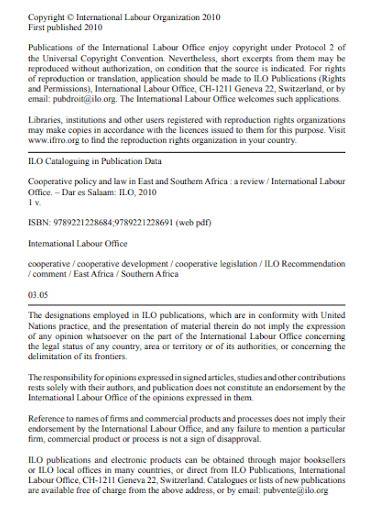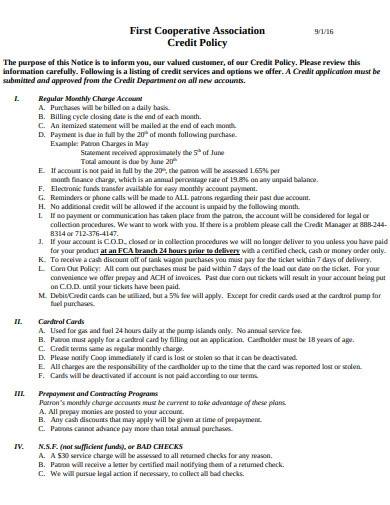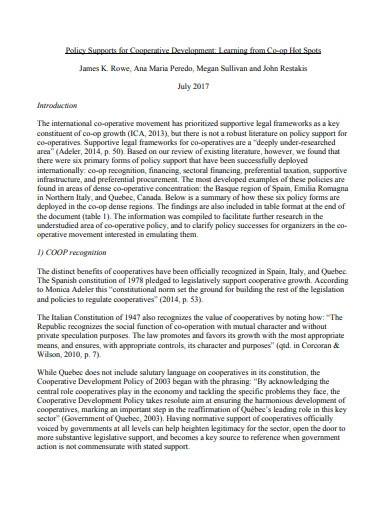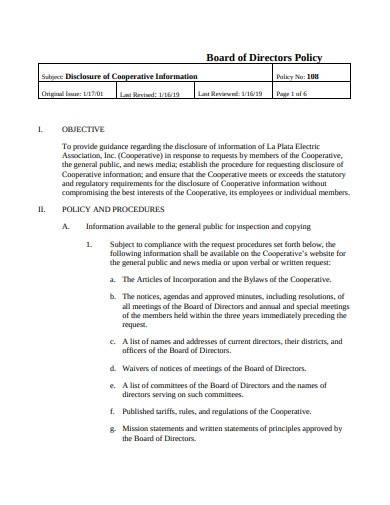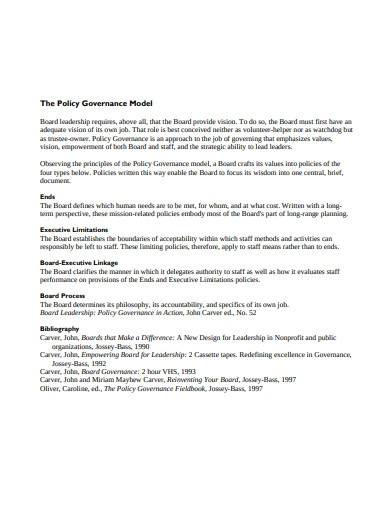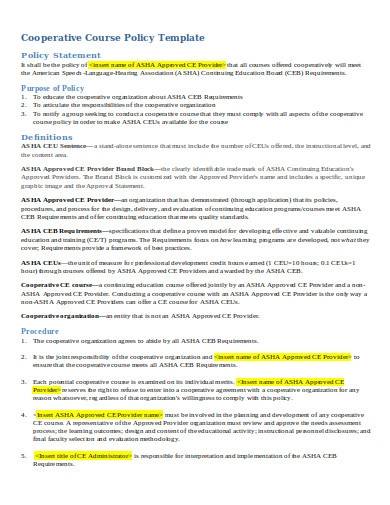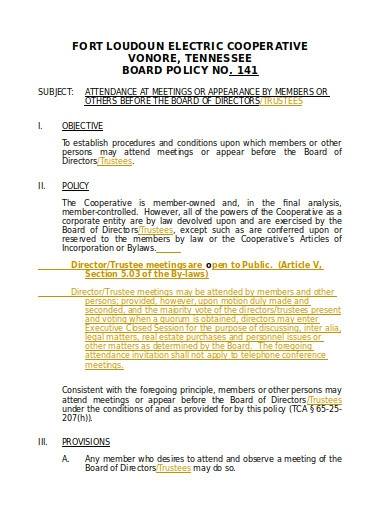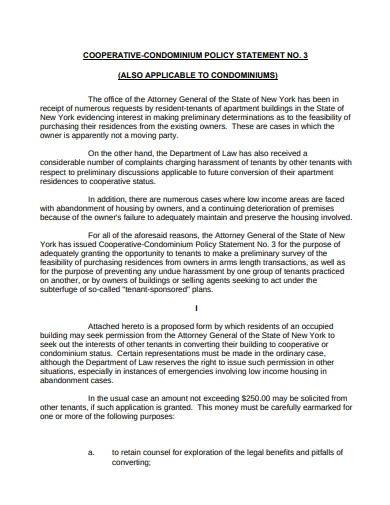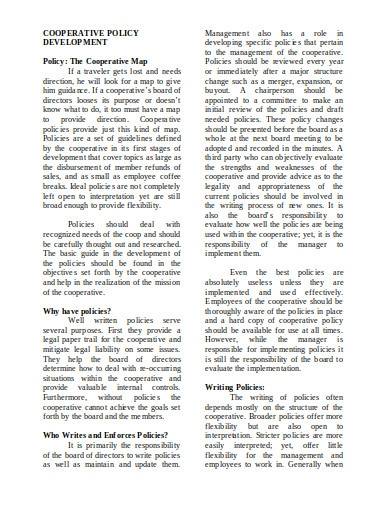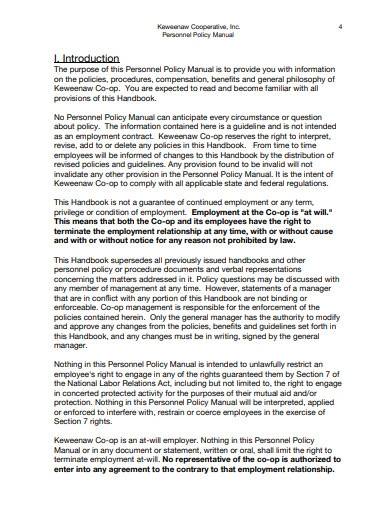Cooperative proposals are a unique form of business organization that can provide numerous benefits to its members and the wider community. They can generate agency employment contract, increase income statement samples, and create wealth, particularly in rural areas and marginalized communities. Cooperatives can also promote social and environmental sustainability by incorporating social and environmental concerns into their business practices. However, cooperatives also face challenges, such as limited access to financing, inadequate legal memorandum samples, and a lack of technical skills and knowledge.
FREE 10+ Cooperative Policy Samples & Templates
1. Cooperative Policy and Law Template
2. Cooperative Association Credit Policy
3. Cooperative Support Policy Template
4. Board of Directors Cooperative Policy
5. Governance Cooperative Policy Template
6. Cooperative Course Policy Template
7. Cooperative Board Policy Sample
8. Sample Cooperative Committee Policy
9. Cooperative Condominium Policy Statement
10. Sample Cooperative Policy Development
11. Sample Cooperative Policy Template
What is Cooperative Policy?
Cooperative policy refers to a set of corporate bylaws, regulations, and practices that aim to promote and support the development roadmap samples and operation of cooperatives. A cooperative is a type of business organization where members jointly own and control the enterprise value samples, with the aim of meeting their common economic, social, and cultural needs and aspirations.
How To Make a Cooperative Policy?
Another important aspect of cooperative policy is financing and a tax compliance statement. Cooperatives often face difficulties in accessing financing, particularly from traditional sources such as banks. Cooperative policy can provide financial support to cooperatives through grant budget proposal, simple loan agreement, and subsidies. Developing a cooperative policy involves a comprehensive and consultative process that engages stakeholders, including government agencies, cooperatives, civil society organizations, and other relevant actors. The following are some key steps in developing a cooperative policy samples:
Step 1- Conduct Needs Assessment
A needs assessment is a crucial first step in developing a cooperative policy. It involves identifying the challenges and opportunities facing cooperatives, as well as the gaps in the legal and regulatory frameworks and support services for cooperatives.
Step 2- Establish Task Force
A task force comprising representatives from government agencies, cooperatives, civil society organizations, and other relevant actors can be established to oversee the development of the cooperative policy. The task force should be inclusive and diverse, reflecting the different perspectives and interests of stakeholders.
Step 3- Conduct Consultation
Stakeholder consultations are essential in developing a cooperative policy that is inclusive and reflects the needs and aspirations of the cooperative sector. Consultations can take various forms, such as workshops, public hearings, surveys, and focus group discussions. The consultations should be conducted at the national, regional, and local levels to ensure broad participation.
Step 4- Draft Cooperative Policy
Based on the findings of the needs assessment and stakeholder consultations, a draft cooperative policy can be developed. The policy should be comprehensive and cover all aspects of the cooperative sector, including legal and regulatory frameworks, financing and taxation, education and training, marketing and networking, and social and environmental sustainability.
What are the key components of a cooperative policy?
The key components of a cooperative policy include legal and regulatory frameworks, financing and taxation policies, education and training programs, marketing and networking support, and social and environmental sustainability initiatives.
Who is involved in developing a cooperative policy?
Developing a cooperative policy involves a comprehensive and consultative process that engages stakeholders, including government agencies, cooperatives, civil society organizations, and other relevant actors. A task force comprising representatives from these groups can be established to oversee the development of the cooperative policy.
How is a cooperative policy implemented and monitored?
Implementation of a cooperative policy requires the allocation of resources and the establishment of appropriate structures and mechanisms for delivering the policy objectives.
In conclusion, cooperative policy plays a vital role in promoting and supporting the development and operation of cooperatives. A supportive legal framework, financing and taxation policies, education and training programs, marketing and networking support, and social and environmental sustainability initiatives can all contribute to the success of cooperatives. By recognizing the unique nature of cooperatives and providing supportive measures, cooperative policy can help to overcome the challenges that cooperatives face and maximize their potential benefits for their members and society as a whole.
Related Posts
FREE 15+ Construction Safety Policy Samples in MS Word | Google Docs | PDF
FREE 20+ Student Feedback Policy Samples in PDF
FREE 30+ Fee Policy Samples in PDF | MS Word
FREE 29+ Work Policy Samples in PDF
FREE 20+ Recruitment Policy Samples in PDF
FREE 20+ Policies and Procedures Samples in MS Word | Google Docs | PDF
FREE 50+ Feedback Policy Samples in PDF | MS Word
FREE 10+ High School Credit Policy Samples & Templates in MS Word | PDF
FREE 10+ Student Freedom of Expression Policy Samples in PDF
FREE 10+ Suicide Prevention Policy Samples in MS Word | PDF
FREE 10+ Plagiarism/Cheating Policy Samples in MS Word | PDF
FREE 50+ Policy Approval Samples in PDF | MS Word
FREE 50+ Planning Policy Samples in MS Word | Google Docs | Pages | PDF
FREE 10+ Related Personnel Policy Samples in MS Word | PDF
FREE 10+ Suspension And Expulsion Policy Samples in MS Word | PDF

